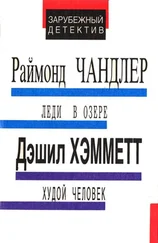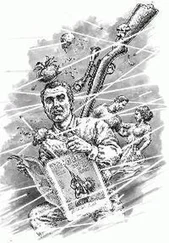Аврам Дэвидсон - Peregrine - primus
Здесь есть возможность читать онлайн «Аврам Дэвидсон - Peregrine - primus» весь текст электронной книги совершенно бесплатно (целиком полную версию без сокращений). В некоторых случаях можно слушать аудио, скачать через торрент в формате fb2 и присутствует краткое содержание. Год выпуска: 1971, ISBN: 1971, Издательство: New York : Walker, Жанр: sf_all, на английском языке. Описание произведения, (предисловие) а так же отзывы посетителей доступны на портале библиотеки ЛибКат.
- Название:Peregrine : primus
- Автор:
- Издательство:New York : Walker
- Жанр:
- Год:1971
- ISBN:0802755461
- Рейтинг книги:5 / 5. Голосов: 1
-
Избранное:Добавить в избранное
- Отзывы:
-
Ваша оценка:
- 100
- 1
- 2
- 3
- 4
- 5
Peregrine : primus: краткое содержание, описание и аннотация
Предлагаем к чтению аннотацию, описание, краткое содержание или предисловие (зависит от того, что написал сам автор книги «Peregrine : primus»). Если вы не нашли необходимую информацию о книге — напишите в комментариях, мы постараемся отыскать её.
Peregrine : primus — читать онлайн бесплатно полную книгу (весь текст) целиком
Ниже представлен текст книги, разбитый по страницам. Система сохранения места последней прочитанной страницы, позволяет с удобством читать онлайн бесплатно книгу «Peregrine : primus», без необходимости каждый раз заново искать на чём Вы остановились. Поставьте закладку, и сможете в любой момент перейти на страницу, на которой закончили чтение.
Интервал:
Закладка:
“Thank you. I think it was, rather.”
“And what do you intend to do with it?”
“Do with it? Well, I hadn’t exactly planned what to do with it. I don’t think it would become me, as a Philosopher, to be overconcerned with the immediately practical aspects of things. Life is not merely for the moment. And, even if I am not able to utilize it, perhaps there may come one or more after me, to whom it may prove utile.”
The implications of these words were somewhat slow in sinking into Peregrine’s mind, but when they did, he shuddered. After a moment, swallowing a large and awkward Nothing which had lodged in his throat, he said, rather tentatively, “Uh . . . do they, uh . . .feed us here?”
The philosopher looked up in some surprise. “Certainly they feed us,” he said. “They must. It’s the law, you know. All persons keeping prisoners in private dungeons and/or crypts must supply them with a ration consisting in not less than one half of a quarter loaf per diem, delivered not less often than every third day; plus, once every third day, a piece of salt junk not smaller than a small man’s hand; plus water, quantity sufficient to drown a large rat.”
“Also,” he added, after a moment, “during Lent and Fast Days, either cheese or a double quantity of pulse is substituted for the salt junk.”
Peregrine thought this over, too; and asked if it was customary to drown the large rat each time in order to be sure that the water was of the requisite amount. Volumnius shrugged. One usually placed, he said, a small piece of food in the basin in order to tempt the rats, who thus generally drowned themselves. This was done, not to test the legality of the liquid rations, but in order to supplement the rations.
“I hope you dined well before being seized, because it’s two more days till feeding time. —What? Not hungry? Well, if you get hungry, let me know, I have some nice rat which is more or less pickled in a brine derived from soaking salt junk. Eh? The very though-t gags you, does it? Hoity-toity. ’Tis easy to see that
you are no philosopher. Well, well. Mustn’t brood, you know. Here. Let me entertain you. Shall I show you my shop? Did you know that I keep a shop here?”
And with no more than an occasional dotty cackle, the philosopher proceeded to show him all sorts of things which he had squirreled away over in his corner of the darkness; such as large and small amphorae, dried bread, grated cheese, pickled rat, pieces of scrap metal including an old sun-dial, old clothes, old chains and fetters, instruments of torture, pieces of wood, and sundry segments and specimens of this and that; all of which would not have seemed out of place in the establishment of Ulrich, who sold broken swords by weight. “Passes the time,” explained the philosopher, with a shrug. “What'll you buy? What’ll you buy?” he chanted, imitating the shopkeeper’s cry.
“I used to keep a blacksmith’s shop,” he explained, “but 1 brought it back.” He then disclosed some bits of papyrus and a number of old keys, and was rummaging in the niches and caches of his corner when something scratched at Peregrine’s mind.
“What do you mean, you brought it back?”
“I mean that I used to occupy myself by pretending to use the smithy-implements and so on. But one day I was asleep when they came down and awoke in bare time to restore the things to their place over yonder. After that I let them alone.”
Peregrine thought this over carefully. He was not entirely sure of what it might mean. “That sounds like a more interesting game!” he said, “Much more so than mere shopkeeping.”
“Do you really think so? Sure? Well, well, de gustibus,” and, with a slight shrug, Volumnius calmly reached up and gave his chain a tug. The ring-bolt popped out of its rusty hole in the dungeon wall and Volumnius, neatly wrapping his chains about him as though they were the folds of a toga, walked out of the doorless cell and into the next chamber. And, from thence, he returned, bearing hammer and chisels and bellows. “Who’ll be the horsey?” he asked. “Do you want to be the horsey?”
“Can’t shoe the horsey without a fire to bend the horseyshoes!” Peregrine said, merrily.
“One fire, coming up!”
Clanking cheerfully, Volumnius trotted back with brazier and charcoals. Peregrine, who had, needless to say, already tested
his own chain and ringbolt, now began to build up a fire-base of old papyrus and scraps of wood. Then he reached out and took fire from the lamp with a wisp of old rope. At once his fellowprisoner raised a cry of alarm.
“But you are not really going to light the fire are you?”
“Of course I am,” Peregrine said, doing so. “Why not?”
“Well, for one thing, the fumes of charcoal are deadly poisonous—”
“In an enclosed and airless place, certainly. In this enormous crypt, certainly not.”
“And furthermore, if they find upon their next return what we have been up to, they will be simply furious!”
Peregrine muttered something about crossing that bridge when he came to it. He broke off small bits of charcoal, just as he had often seen done at his father’s stable-forge, and gradually built up a small fire. Volumnius, torn between pleasure and apprehension, made an uncertain movement towards the bellows. “Not yet,” said Peregrine. “Perhaps you have a fan . . . er .
. . shopkeeper?”
“Certainly I have a fan!” said the older man, at once falling happily into the game once more. “Best quality Egyptian ware, and the very latest fashion in Ravenna,” he said, holding up a filthy but still serviceable item.
“I’ll take it.”
“That will be eight drachmas, please.”
“Put it on my bill.”
“Sorry, ours is a strictly one-price, cash-and-carry establishment.”
“Volumnius,” Peregrine said, quietly, “fan the fire or I’ll brain you with this hammer.”
“Oh, very well,” said the philosopher, rather sulkily. “But where’s your sense of fun?”
The anvil, of course, could not be moved, but a fairly large and fairly flat stone was wedged up from the far corner and rolled near enough to serve. It took a while tor the fire, now at last rushed on with bellows, to grow hot enough; and longer, for that part of Peregrine’s chain (as near to the ankle as he could manage) to grow red and soft. Frequently he changed the sopping-wet rags which protected him from the fire s heat and limited the heat from extending too much from the links in the forge
along with the rest of the chain and to the fetters and finally to his flesh. But, at long enough last, he was able to strike well enough with hammer and chisel to sever the chain.
“Shopkeeper, have you by any chance more oil?”
“Yes, yes, let me see where did I oh in this old jar here, first pressing of the vine, prime quality— Fill the lamp? Certainly sir. And that will be . . .” Here he glanced again at the hammer, said, “I’ll put that on your bill, shall I sir? . . .”
The servitor Julianus was so quiet, back in the forward hole, that Peregrine thought he was dead. But the eyes moved slowly and fearfully in the light of the dim and flaring lamp. And when Peregrine placed his hand on the man’s shoulder, meaning no more than a gesture of reassurance, he moaned and seemed to fall away, somehow, to fall away and to shrink in upon himself: and his flesh was cold.
“Here, now, man, take heed,” Peregrine said, dismayed. “Don’t you see that I am not your half-mad master, but your fellow-prisoner?” Julianus perhaps perceived some little, at least, of this; for now his eyes ceased to rest upon them, but were fixed in the direction along which death would come. “Enough of talking, to work,” Peregrine said. He tested the bolt in the wall, but it was firm. By greater good fortune than poor Julianus was then capable of grasping, however, several of the links were almost half-rusted through. There was no need to go back and move the forge-gear in its entirety. A hundred blows, more or less, with the cold-chisel, sufficed to part them. Julianus took one step, took two, fell forward.
Читать дальшеИнтервал:
Закладка:
Похожие книги на «Peregrine : primus»
Представляем Вашему вниманию похожие книги на «Peregrine : primus» списком для выбора. Мы отобрали схожую по названию и смыслу литературу в надежде предоставить читателям больше вариантов отыскать новые, интересные, ещё непрочитанные произведения.
Обсуждение, отзывы о книге «Peregrine : primus» и просто собственные мнения читателей. Оставьте ваши комментарии, напишите, что Вы думаете о произведении, его смысле или главных героях. Укажите что конкретно понравилось, а что нет, и почему Вы так считаете.






